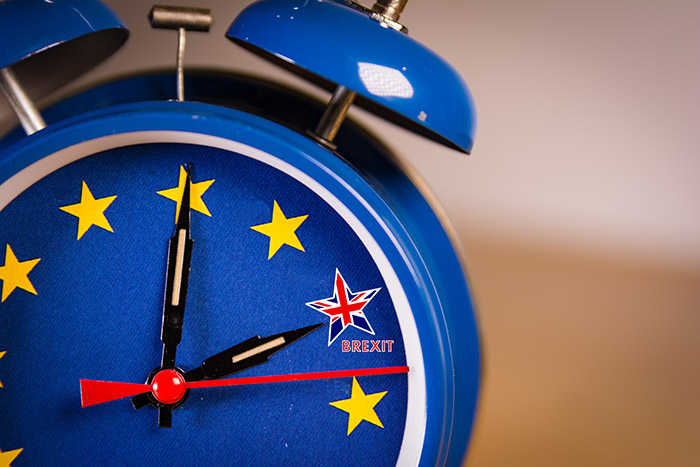Lars Albertsen has spent his professional career in sales focusing on the UK market, working his way up to overseeing the entire British market for Danish Crown Pork. Today he is the global sales director for Danish Crown Pork and manages the company’s worldwide sales of £2.6 billion
On January 15 2019, the UK Parliament voted against the Brexit deal that Theresa May had negotiated with the EU.
At the time of writing, with just over a month to go until the UK’s scheduled departure, there is still no further clarity on whether the UK will be leaving at the end of March with a deal in place, including a transition period.
The possibilities of a delayed Brexit or even leaving without a deal are still very much on the table.
As a result, the implications of Brexit for Danish Crown are almost impossible to predict because we don’t know the conditions for the EU’s future trade with the UK.
Danish Crown’s total turnover in the UK is around DKK 12 billion (about £1.4bn). Of this amount, imported pigmeat from Denmark amounts to around DKK 2.9bn (£340m) and products from Danish Crown’s UK interests total around DKK 9bn (£1bn).
In a worst-case scenario, Danish Crown may have to pay customs tariffs of 25% as well as facing higher logistics and administrative costs due to what are often referred to as technical trade barriers.
On the other hand, the UK produces only just over 60% of the food it consumes, so there is no question about the country’s continued need for imports.
As we see it, it’s hard to imagine that the UK would impose the maximum tariff of 25% on pork under WTO rules, as it would lead to higher food prices for a population that has already lost considerable purchasing power following the Brexit vote in 2016.
A likely scenario is one with a low or reduced tariff, but we do not know, and that uncertainty is actually the biggest challenge right now.
Danish Crown is preparing for a no deal scenario, so that, administratively, we’ll be able to handle virtually any kind of paperwork should the need arise.
It is worth noting that we already have considerable experience in this area as exports to Japan and China, for example, are administratively quite demanding.
Moreover, we have prepared an overview of the logistical challenges we might face, and on this basis have done some preliminary work that will enable us to quickly take the necessary steps.
In our view, one of the main reasons why the British will continue to import meat from the EU is because British consumers and consumer organisations are clear and unequivocal in their demand for high food safety and animal welfare standards in primary production.
Of course, this doesn’t rule out the possibility of the British welcoming pork imports from the US and Brazil in the future, but this is unlikely to happen overnight because of the use of growth hormones and antibiotics in production in those two countries.
Danish Crown’s beef exports to the UK are not significant, but in a no deal scenario with high tariffs, the entire European beef market would be adversely affected, as Irish abattoirs would be trying to sell the large volumes of beef which they currently export to the UK elsewhere on the European market.
But for exactly the same reasons as for pork, it is difficult to see the UK wanting to impose high tariffs on beef imports.
The biggest challenge right now is that the entire debate about Brexit and the prospect of an uncertain future are causing British consumers to restrict their spending.
At the same time, the pound is under continued pressure due to all the uncertainty, which is making imported meat more expensive than it actually needs to be right now.
At the end of the day, in the worst- case scenario – and especially in the event of a hard Brexit, we’ll be facing considerable challenges.
However, there is every likelihood that the British will be interested in continuing to trade with Europe on terms that will enable us to maintain much-valued Danish pork exports to the UK.




